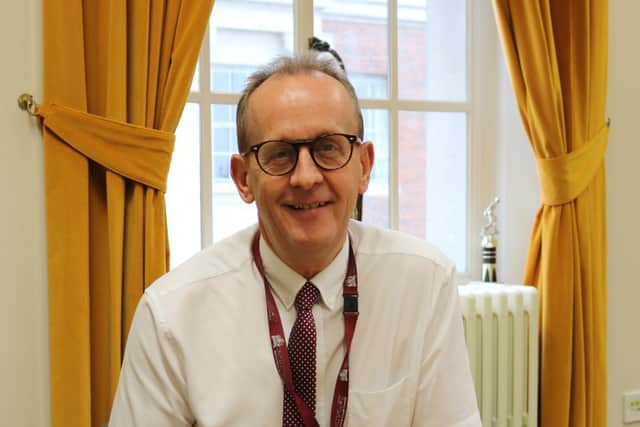More than half councils in poorer areas 'uncertain' over balancing books
In a dire warning of the perilous state of local government finances, 47 authorities in the North, the Midlands and on the south coast said they will have to make savings totalling £700m on spending plans set just four months ago due to inflationary pressures.
As well as 55 per cent of councils admitting they have doubts over covering costs in 2023/24, 15 per cent said they had less than an even chance of doing so.
Advertisement
Hide AdAdvertisement
Hide AdFurthermore, 60 per cent of councils said they will be forced to take cost-cutting measures to reduce capital budgets set aside for key regeneration and infrastructure projects.


The results emerged from a survey by the Special Interest Group of Municipal Authorities (SIGOMA) of its member councils.
With a legal requirement to balance the books, councils will be forced to either further deplete their available reserves or make cuts to planned spending, the survey showed.
The majority of councils said this created a risk that the standard will drop across services such as adult and children's social care.
Advertisement
Hide AdAdvertisement
Hide AdResponding to the findings, Labour MP for Barnsley Central Dan Jarvis said annual Government funding settlements compounded councils' resource problems.
He added: "After 13 long years of cuts, council finances are in a perilous position.
"Current inflationary pressures and a funding cliff-edge mean that many councils may be forced to make further cuts.
"This is the opposite of levelling up and will only exacerbate the cost-of-living crisis for millions. We need a plan to transform our communities, not just tinker around the edges."
Advertisement
Hide AdAdvertisement
Hide AdOn average, Government funding fell in real term since 2015/16 across all types of councils, with reductions slowing since 2019-20.
Funding began to increase in 2020-21 but councils' growing reliance on council tax and other revenue to cover costs means there is significant variation in the overall spending power of individual local authorities.
Councils in more deprived areas, which have lower council tax bases generating less revenue, stress their higher levels of Government funding per person based on needs is not enough to address the inequality in resources available.
SIGOMA is campaigning for a new funding settlement for local authorities which enables long-term planning.
Advertisement
Hide AdAdvertisement
Hide AdSIGOMA chairman Sir Steve Houghton, who is Labour leader of Sheffield city council, said single-year settlements create unnecessary uncertainty.
Sir Steve added: "In our manifesto released last month, we laid out how multi-year funding settlements would go some way to helping reduce this uncertainty and give councils confidence and the funding capabilities to address inflationary pressures by taking long-term investment decisions that are best for supporting their communities."
The Department for Levelling Up, Housing and Communities has been approached for comment.